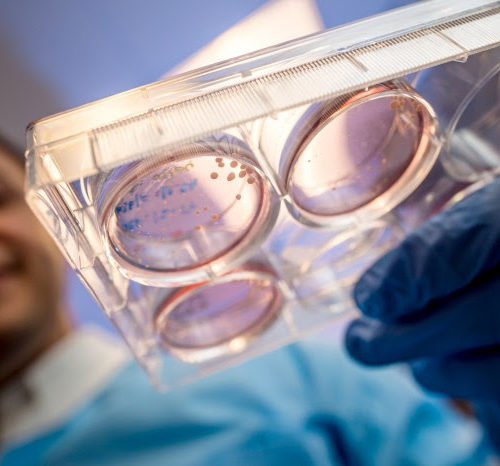A new ‘global atlas’ study characterizes insomnia as a novel risk factor for developing type 2 diabetes. In total, the researchers identified 19 risk factors and dismissed 21 suggestive risk factors based on insufficient scientific evidence. New research indicates insomnia is a possible risk factor for type 2 diabetes. Globally, around 463 million adults lived with diabetes...
No benefit from drug used to reduce heart disease in kidney patients
TRANSLATIONAL RESEARCH INSTITUTE Following a large-scale clinical trial, researchers have found that lanthanum carbonate does not reduce the risk of cardiovascular disease developing in patients with chronic kidney disease. The drug is routinely prescribed to patients with chronic kidney disease to help reduce the risk of both bone disease and cardiovascular disease, with cardiovascular disease...
The lasting misery of coronavirus long-haulers
A person who has recovered from COVID-19 takes part in a rehabilitation programme in Genoa, Italy. The lung scans were the first sign of trouble. In the early weeks of the coronavirus pandemic, clinical radiologist Ali Gholamrezanezhad began to notice that some people who had cleared their COVID-19 infection still had distinct signs of damage....
Scientists discover the earliest steps in the development of an immune response
by University of Birmingham The process of white blood cells responding to infections begins earlier than previously thought, according to a new study by scientists at the University of Birmingham. When the body is infected, the white blood cells that make up the immune system step into action to fight back. However, the process of developing...
Identifying, preventing and managing heart rhythm side effects of medicines
MERICAN HEART ASSOCIATION DALLAS, Sept. 15, 2020 — Health care professionals should become more familiar with medications that cause irregular heart rhythms called arrhythmias, according to “Drug- Induced Arrhythmias,” a new scientific statement from the American Heart Association, published today in the Association’s flagship journal Circulation. “Many commonly used medications can cause irregular heartbeats as a...
ReStore Exosuit Shows Positive Trial Results for Stroke Rehab
Soft exosuits that provide assistive force during movement could be a game changer for patients with mobility issues. Such devices can help enhance rehabilitation and assist patients while they perform everyday tasks. The idea with such technology is that the soft suit feels almost like a piece of clothing and applies force gently and evenly...
New dental treatment helps fill cavities and insurance gaps for seniors
Reviewed by Emily Henderson, B.Sc.,Sep 15 2020 Dental hygienist Jennifer Geiselhofer often cleans the teeth of senior patients who can’t easily get to a dentist’s office. But until recently, if she found a cavity, there was little she could do. “I can’t drill. I can’t pull teeth,” said Geiselhofer, whose mobile clinic is called Dental at...
How COVID-19 can damage the brain
Some people who become ill with the coronavirus develop neurological symptoms. Scientists are struggling to understand why. Some evidence that SARS-CoV-2 can infect the brain comes from ‘organoids’ — clumps of neurons created in a dish. The woman had seen lions and monkeys in her house. She was becoming disoriented and aggressive towards others, and...
New Microbiome Health Index provides a “credit score for your gut”
By Rich Haridy, September 15, 2020 The proposed test will not detect specific disease but instead offer an indication of one’s general health status Researchers at the Mayo Clinic have developed a test that can predict a person’s general health status by measuring the levels of 50 gut microbial species. Called the Gut Microbiome Health...
Predicting therapeutic response in depressed teen girls
by Elsevier The risk of developing major depressive disorder (MDD) surges during adolescence–particularly for girls. Cognitive behavioral therapy (CBT) can be an effective treatment, but only about half of girls diagnosed with depression show significant improvement. Researchers at Harvard Medical School and McLean Hospital have now identified a non-invasive test of brain function that could help...







